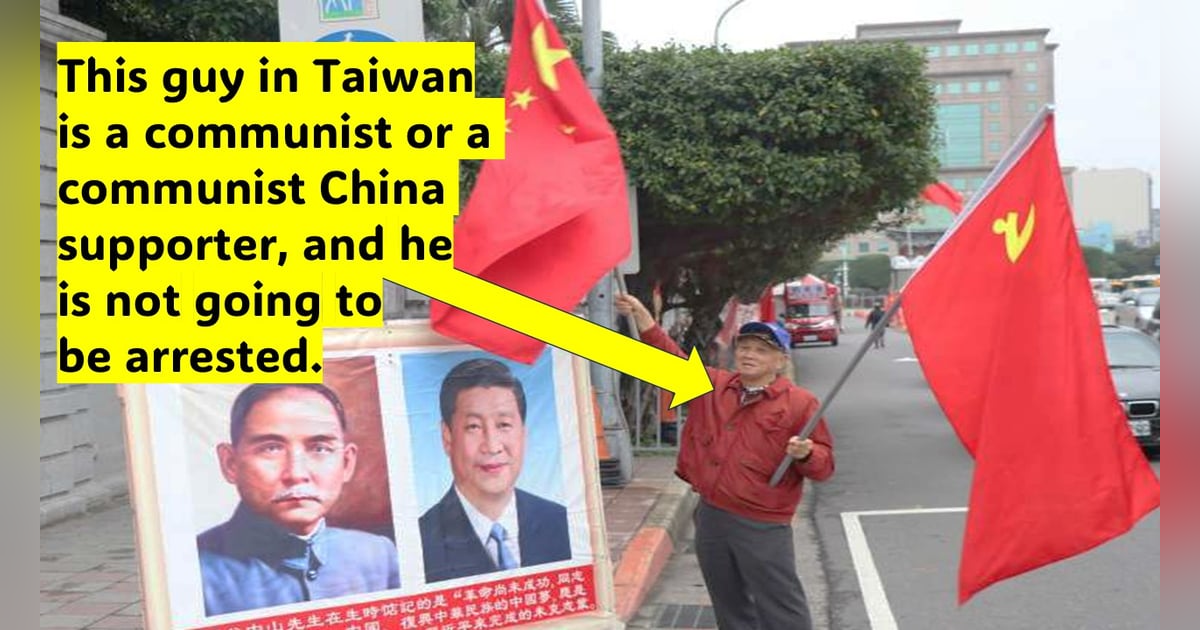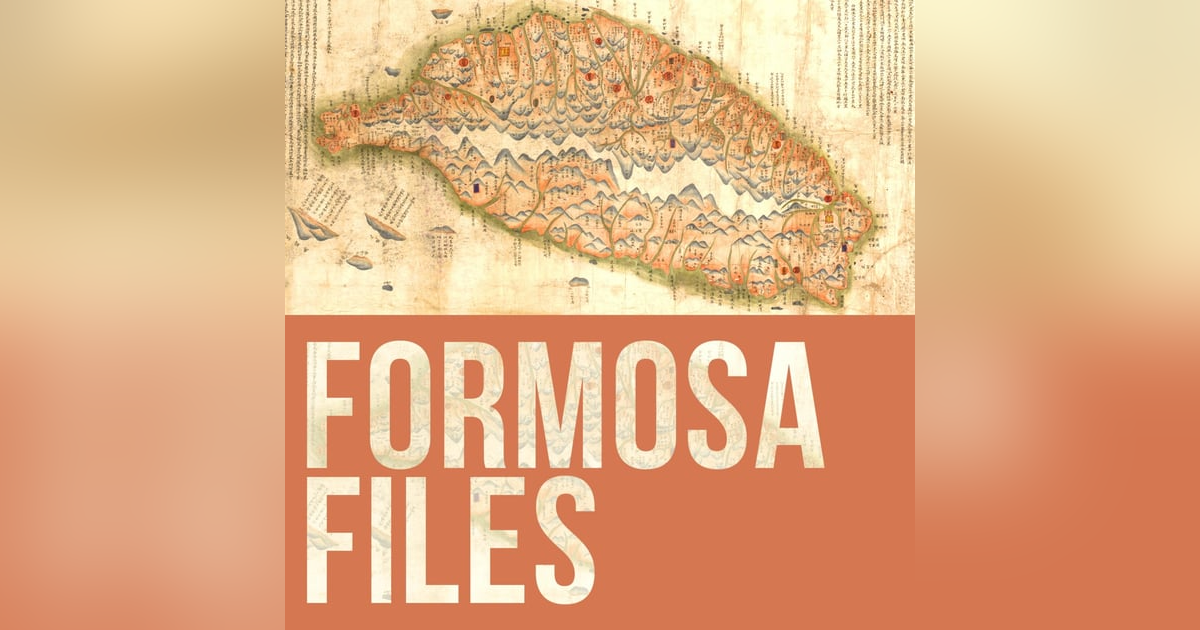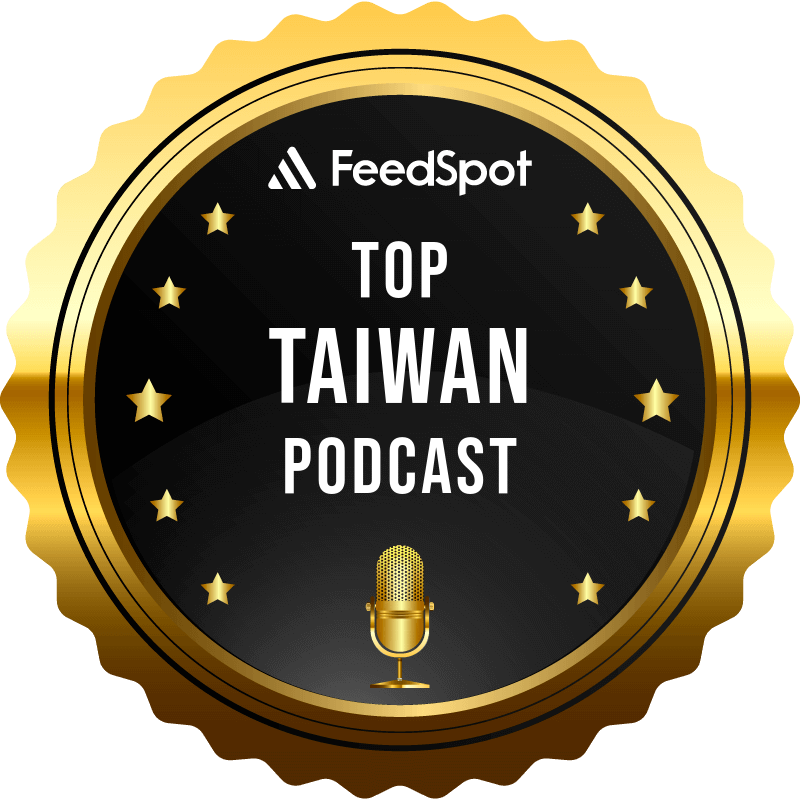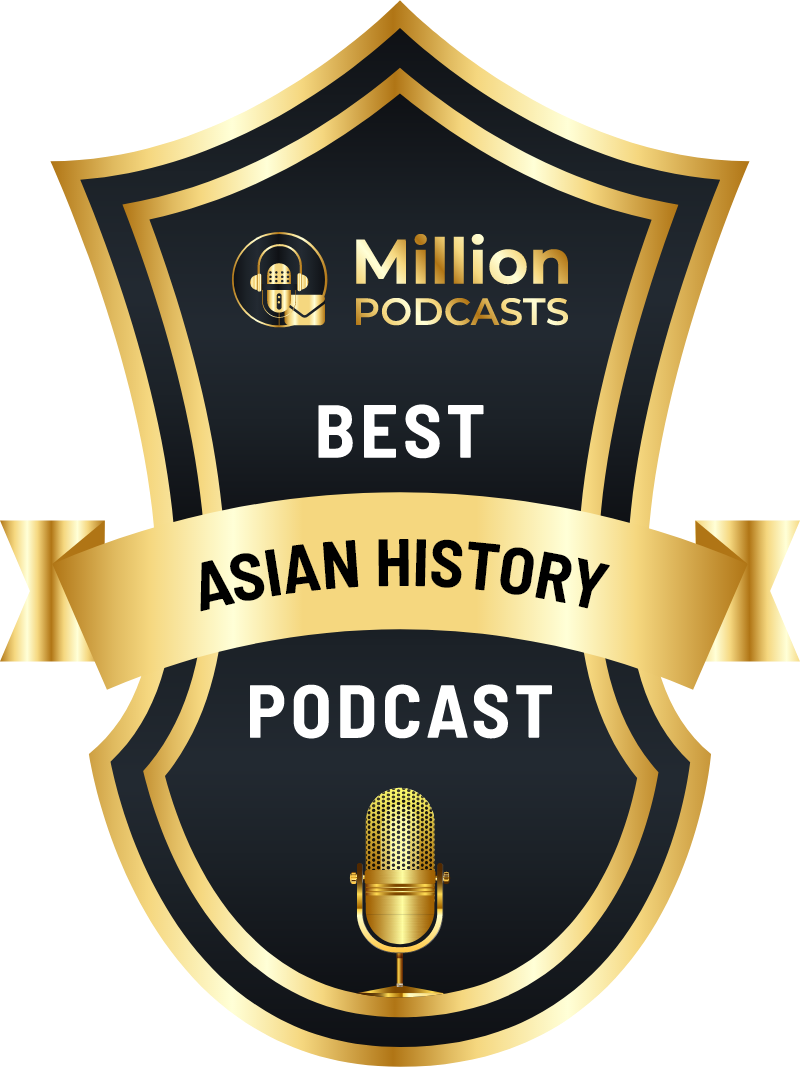S5 - Mini Episode – Communist Parties in Taiwan (and a re-run on the gruesome tale behind Tomb Sweeping Festival 清明節)


Taiwan is enjoying a four-day break for Qing Ming Jie, usually called Tomb Sweeping Festival (or Day) in English. Formosa Files is taking a bit of a break as well, but Eryk thought you might be interested in a short history of communist parties in Taiwan, so he recorded a mini episode on that topic. After seeing red, stay with the episode for a re-release of the (or at least one of the) origin story of the Tomb Sweeping Festival - an edit from (Not So) "Happy Holidays - S2-E28."
READ: Taiwan in Time: The ill-fated Taiwanese leftists
List of REDS:
- The FIRST:
Taiwanese Communist Party 臺灣共產黨/臺灣共產黨
Founded: April 15, 1928 – Banned: September 1931
No known flag.
Cofounded by Xie Xuehong 謝雪紅 “Red Snow” (Image shows her in 1952)
She was born Xie Anü (謝阿女) in Changhua County in 1901 to a working-class family, the fourth of seven children. She lived from October 17th, 1901 to November 5th, 1970. For her loyalty to Chinese communism, she was, of course, not rewarded. In 1968, during the Cultural Revolution, Xie Xuehong was openly “struggled against” by comrades from the “Taiwan Democratic Self-Government League.” A sign that read “Big Rightist Xie Xuehong” was hung on her chest. She was forced to kneel and bow and essentially tortured. Xie Xuehong was 67 years old when she was attacked as a “rightest” after spending most of her life fighting for communism. She died two years later.
Founded by Wang Lao-yang, October 16th, 1994 – Legally registered July 20, 2008
Dissolved April 2020
Membership: About 2000.
Ugly flag (look at the south of Taiwan…is that a dolphin?):
General Secretary: Chen Tianfu (until 25 September 2009) Party dissolved in May 2018.
No known flag
Chen went on to found the:
Founded by/date: Chen Tien-fu - October 1, 2009. Dissolved: April 29, 2020
Ugly (?) flag:
- LAST ONE STANDING:
Taiwan People's Communist Party臺灣人民共產黨
Leader (Supreme, I assume): Lin Te-wang. Founded in February 2017 – so far still painting the town red.
From Wiki: In 2023, Lin Te-wang and two other party members were indicted under the Anti-Infiltration Act for colluding with the Chinese Communist Party to influence the 2024 presidential and legislative elections. The Chinese government's Taiwan Affairs Office subsequently condemned the indictments.
Ugly flag:
Hey China! The 70+-year-old dude below is probably misinformed or outright insane, but we let him do his weekly ritual of yelling about how evil the ROC is and how Taiwan longs for the embrace of Xi Jinping… but guess what? We don’t arrest him! Shocking, yeah? Give it a try…it’s called “freedom.”
Sources:
Copper, John F. Taiwan: Nation-State or Province? (6th Edition). Westview Press, 2013.
Roy, Denny. Taiwan: A Political History. Cornell University Press, 2003.
Guy, Nancy. Peking Opera and Politics in Taiwan. University of Illinois Press, 2005.
Government of Taiwan: Ministry of the Interior party registration archives.
Ketty Chen, "Democratic Transition and the DPP," Taiwan Insight, University of Nottingham, 2019.
-----------------------------------
One of Taiwan’s many niche parties: “The Motorists' Party of ROC (MPR)”
--------------------- Next Up:
The story of Qīngmíng Jié (Tomb-Sweeping Festival) “The festival's origins are intertwined with the Cold Food Festival (Hánshí Jié), established to commemorate Jie Zitui, a loyal official of Duke Wen of Jin during the Spring and Autumn period. According to legend, during Duke Wen's exile, Jie provided him with sustenance by offering meat from his own thigh. Upon regaining his position, Duke Wen sought to reward Jie, who had retreated into the forest with his mother. Unable to locate him, Duke Wen ordered the forest to be set ablaze to force Jie out, inadvertently causing Jie's death. In remorse, Duke Wen decreed a period during which the use of fire was prohibited, leading to the consumption of cold food.” –Nice.
Do us a favor and rate/review the show! It really helps. Do it on Apple Podcasts or here on our website.
Write us with questions or ideas at formosafiles@gmail.com
AND THE BIGGEST REQUEST: tell others about this free, not-for-profit resource about Taiwan.
THE TAIWAN HISTORY PODCAST – FORMOSA FILES
TRANSCRIPT
S5- Mini Episode: Taiwan Communist Parties (and the origin story of Qingming Jie
Release Date: April 3, 2025
Time: 19:29
PLEASE NOTE: This transcript was created by AI; it may not be entirely accurate. Any errors are the result of the AI transcription, and Formosa Files is not liable for the content in this transcript. Thank you, and use AI responsibly 😊
--------------------------------------------
Okay, here's a joke from former U.S. President Ronald Reagan. He said this back in 1987. What is a communist? The answer, a person who has read the works of Marx and Lenin. And what is an anti-communist? The answer, someone who understands the works of Marx and Lenin.
Okay, so I hope you don't mind, but it's just me again. John is toiling tirelessly for the good of the masses. And to be frank, he'd probably have an aneurysm trying to come up with disparaging terms for commies. So, you're stuck with comrade Eryk Michael Smith. This is going out on Qingming Jie, so after a little exploration of the Communist Parties of Taiwan, stick around because at the end, I've added the story of Tomb Sweeping Day, Qingming Jie, from an older episode about holidays that we did.
So, a few weeks back, I posted some flags of Communist Parties of Taiwan on Facebook as well as some of these parties' origin stories, and many people said it was interesting. So, I thought, hey, maybe we should look a bit deeper into the curious and pretty much-overlooked stories of Taiwan's Communist Parties. And yes, plural, parties. Taiwan hasn't just had one Communist Party, it's had several. Some have been real, some not so much. Some were banned and hunted down, others quietly faded away.
But all of them, I think, tells a story that says a lot about Taiwan's path to democracy, which went from the arrests and executions of illegal Communist activists to today, when anyone can legally start a Communist Party in Taiwan. And that party might just be made up of you, your imaginary friends, and your cat, but it's legal.
The Taiwan History Podcast, Formosa Files, is made possible through the generous sponsorship of the Frank C. Chen Foundation.
To understand the roots of Communism in Taiwan, we gotta go back to 1928. Back then, obviously, Taiwan was still under Japanese colonial rule. The Communist Party of China, or CPC, had been founded just a few years earlier, in 1921. And inspired by Marxist-Leninist ideas and energized by revolutionary fervor, this Communist Party of China, the CPC, they sent out organizers… like missionaries… to all corners of China and beyond. And that “beyond” included Taiwan.
The result was the first attempt of a Taiwanese Communist Party. It was called the Taiwan Branch of the Communist Party of China, officially founded in 1928 in Shanghai by Taiwanese intellectuals, and these include Lin Mushun and Xie Xiehong. I think Formosa Files might want to do a whole episode on Xie Xiehong someday, as she was one of the more fascinating characters connected to trying to turn Taiwan red.
She was a firebrand feminist and Marxist, tried to build alliances with peasant movements and labor unions, and eventually got caught up in the 228 incident of 1947, before fleeing to China and dying in exile. She had an awesome name, although it wasn't her birth name. So, Xie, like Xie Xie the Xie, Xue as in Snow, and Hong as in Red.
So, switch the order around in English and it sounds pretty cool. Red Snow. So, a little twist, the Taiwan Branch of the Communist Party of China wasn't exactly based in Taiwan. It operated mostly in exile in Shanghai, and then later in Tokyo. But it aimed at organizing labor movements and resistance to Japanese colonialism. It was small and crushed pretty quickly. Japanese authorities caught wind and arrested members. And that was the pattern basically during the Japanese era. Try to start a communist party, get arrested, go underground, you know, rinse repeat.
And then came October 1st, 1949, a date that will live in infamy. The People's Republic of China is founded. The Chinese Nationalist Party, or the KMT, flees to Taiwan.
Chiang Kai-shek only did that in December of 1949. The KMT declares itself the legitimate government of all of China, so a government in exile. And the People's Republic of China says, nah, we won, you lost, so start reading Marx because we're coming to liberate you as soon as possible. So now, all of a sudden, communism isn't an abstract idea. It's the ideology of a mortal enemy across the Taiwan Strait. So, we see the 1950s arrive, the Cold War is red hot, and in Taiwan, the KMT launched what became known as the White Terror, a decades-long crackdown on anyone suspected of leftist, pro-communist, or even vaguely unpatriotic ideas.
Tens of thousands were arrested, many were executed, people were imprisoned for decades for simply owning the wrong book, or saying the wrong thing in the wrong place. But an important question, was there an actual underground communist party in Taiwan during this time? The answer is yes, but in a limited sense. There were indeed small networks of pro-PRC sympathizers in Taiwan, especially in the 50s and 60s. Some of them were actively in contact with Beijing, some were simply idealists, some were probably, you know, stupidly convinced by some friend to, hey, come to one of our meetings, brother. And then probably some were just, you know, unlucky students who wanted cheaper textbooks. But of course, what mattered wasn't how real the threat was, it was how real the government believed it was.
And therefore, the communist party remained the monster under the bed, an ever-present excuse for censorship, surveillance, and political imprisonment. But as we all know, ideas are slippery things, pretty hard to jail or execute. Moving along through history, we come to 1987, the lifting of martial law, and it changed everything. Overnight, Taiwan began transforming into the vibrant, loud, argumentative democracy we know today. Parties bloomed like mushrooms after rain, and they kept on blooming. Okay, I found one little example that I thought was funny.
This is how diverse we are now in Taiwan when it comes to political parties. Established in 2014 was the Motorists' Party of the ROC, or MPR. And as the name suggests, they focus on representing motorists and road users. Its political platform includes promoting motorist rights, reforming the driver's license application process, and improving road quality. Oh, and additionally, the party holds conservative views on various social issues and supports Chinese unification. So, uh, good luck with that.
But back to post-martial law 1987, we had green parties, labor parties, indigenous parties, and yes, communist parties too. So as the 1980s comes to a close, and we enter the 90s, all the way through the early 2000s, Taiwan's not jailing communist party members, but they couldn't legally register. But that changed in 2008 after our version of the Supreme Court ruled you couldn't ban a party based on just, you know, the government not being a fan of the ideology of the party.
And so, in 2008, the Taiwan Communist Party was officially registered with the Ministry of the Interior. They'd been around since 1994, but they were now a legal political party and could fly their red flag with a hammer and sickle. They were headquartered in Taichung and could operate without fear of arrest.
And what happened? Well, people from across Taiwan began flocking to the new communist mecca of Taichung to join the TCP in droves. Uh, no, that didn't happen. The party was not popular, and it was tiny. But it existed, and I'm glad, as it represented something much larger than itself. It represented the idea that in a free society, people are allowed to believe in stupid, strange, outdated, or even deeply unpopular ideas. Also in a free society, your silly party is allowed to have a super ugly flag.
I'll put images of the flags in the show notes, but one of them can't even draw the outline of Taiwan better than like a three-year-old. It's insane. Anyway, here's a quick timeline or breakdown of those who wish Taiwan would Qi Lai, Qi Lai!! – and paint the east red.
So, the OG was the Taiwanese Communist Party, established April 15th, 1928 during Japanese colonial rule. That was the one with Red Snow. Red Snow and her fellow Reddies were, um, actually subordinate to the Japanese Communist Party in the beginning, but they took a pretty bold stance because they were seeking Taiwanese independence from Japan.
Uh, you know, which was a colony of Japan. So, this original Communist Party, they had a few successes. There were a couple of strikes in Takao, Kaohsiung today, but they blundered big time in the late 1920s.
They started planning for armed struggle, and that led to the arrests of over 100 members between 1931 and 1933, which pretty much was the end of the TCP. Some people might give them a bit of credit for contributing to Taiwan's anti-colonial movement and their emphasis on independence, so there's that. Next, we come to the first made-in-Taiwan version, founded by Wang Laoyang in 1994.
The Taiwan Communist Party is the one we were talking about just before that finally became legal in 2008. This guy Wang, surprisingly, at one point was a member of the Democratic Progressive Party, or DPP, but he spent years advocating for the legalization of his Taiwan Communist Party, and eventually in 2008, anti-communist provisions were removed from Taiwan's constitution, allowing them to register officially. Wang's communists were a bit different, and I think Lenin would have almost certainly not approved.
They were into social democracy rather than revolutionary communism. They said, focus on welfare policies and democratic reforms, no armed resistance or violent revolution. You call yourself communists.
Anyway, they had 2,000 members after registering in 08, but again, failed to gain traction. And in 2020, the Minister of the Interior decided that they weren't able to follow the rules. You know, you need meetings, secretaries, and records.
All that takes time and money. They couldn't keep up, so they were dissolved. So, I say thank you to these folks for fighting the good fight and getting the courts to give us more freedoms, but I won't be shedding any tears on the anniversary of their dissolution.
There's really only one still active communist party in Taiwan today, the Taiwan People's Communist Party. Very minor political party, founded in 2017 by a businessman called Lin Dewang. The Taiwan People's Communist Party, these guys advocate for the peaceful unification of Taiwan with China under a socialist framework, whatever that's supposed to mean.
And before we go, we've got a People's Front of Judea versus the Judean People's Front story, and that would be the tale of the Taiwan Democratic Communist Party. The Taiwan Democratic Communist Party, established in 2009 by Chen Tien-fu, who, get this, is a cousin of former President Chen Shui-bian. And what's funny about this party is that originally, this guy Chen Tien-fu, he co-founded the Communist Party of the Republic of China, but there was some fight over whether or not it was okay to put the Republic of China in the name, so he splintered and went off and founded the Taiwan Democratic Communist Party.
Both of those parties were also eventually dissolved because they couldn't maintain the rules and, you know, regulations needed for keeping a political party active. So, moving on to today, most of these parties are either inactive or even the one that's still kicking operates in very small circles. Some face scrutiny, especially under Taiwan's national security laws which ban collaboration with the Chinese Communist Party or advocacy for PRC unification by force.
So those are, uh, forgive the phrase, red lines. You can't actually collaborate with the Chinese Communist Party and you can't advocate for forceful unification by the People's Republic of China. But simply being a communist is not illegal.
And again, personally, this is something I'm really glad about because it says something profound about what kind of country Taiwan is. Try starting a Taiwan Independence Party in Beijing. Good luck with that.
But in Taiwan, you can start a communist party. You can advocate for Marxist ideas, you can criticize capitalism, you can call for worker control of industry, and you can even fly red flags. Even that really ugly, wrong shade of red one with five stars.
This doesn't mean, however, that Taiwan is some sort of ideological free-for-all. There are national security laws, but the basic principle remains, you are allowed to believe something different. Even if it's not viable, even if it's wrong, even if it's ridiculous.
I've heard communism described as a noble dream, or others say a deadly illusion, a utopian fantasy. Fans maybe say it's a response to injustice. And my personal verdict, just a really bad idea.
But ideas don't have to be right to be worth protecting. In Taiwan, you can be a socialist, a monarchist, a libertarian, an anarchist, or someone who thinks all political parties are a scam. And unless you're actively trying to help a foreign power invade, no one's going to arrest you for it.
And I'd say that's a freedom that we shouldn't take for granted. Okay, that's enough communism for one day. Thanks for listening, I'm Eryk Michael Smith, and make sure you check out the show notes where you will find links to all this information, links to books about Taiwan's political history, and of course, images of those really ugly flags.
----------
Next up, Formosa Files presents an edited section from an episode that first aired in 2022. The episode is called, Not So Happy Holidays, Season 2, Episode 28. In this edit, we've cut out all the other holidays and stuck with the origin tale of Tomb Sweeping Day, 清明节, and the warning, it's not a happy story at all.
----------------
After pressing the stop recording button for a recent Formosa Files episode, John and I kept talking about the subject of traditional Chinese stories. And then I repeated my long-held assertion that almost all Chinese folktales are, if not outright horror stories, then at least not happy ones. And that includes the stories behind all of our major festivals, you know, the festivals we celebrate in Taiwan.
And I called you on that, I said, I don't think that's quite right. That's right, you certainly did, so it was a repress the record button and bring it on. Let's go, John.
All right, we'll start with 清明節 …hmm, Qingming Festival, usually translated as Tomb Sweeping Day. It's a good day, respectful veneration of one's ancestors, remembrance of deceased family members. Yeah, so people will go to the graves of deceased family members and clean up the gravestones and surrounding area, make offerings.
The historical story associated with this festival is absolutely fascinating. So over two and a half thousand years ago, before China was even a thing. Before China was a thing? Well, I mean, before it was a unified nation.
So, if you want to be more historical, it's a time of feudal states called the spring and autumn period. Right, so roughly the time of Confucius and Laozi, okay. Correct, so the story goes as follows.
There was a virtuous aristocrat and official called Jiezhu Cui. His master, a prince of Jin, was forced into exile. Jin is one of these feudal states.
The prince was almost starving to death when Jiezhu Cui cut a piece of flesh from his leg and gave it to his master. So, this prince of Jin eventually prevailed, claimed the throne and became Duke Wen of Jin. And he handed out titles and territory to all the subjects who had been loyal, but he told his faithful servant who served him his own meat, I'll never forget about you.
But as soon as he became Duke, he promptly forgot about him. He's forgotten to reward the guy who saved his life by giving him his own flesh to eat. Seems a bit ungrateful.
Very much so. But when this fact was brought to the attention of now Duke Wen, he sought to rectify this oversight. However, Jiezhu Cui was now living in isolation on a mountain with his mother.
So, Duke Wen summons his faithful official to reward him, but Jie declined the order. So, he needs some encouragement to come out of the mountains. So, I'm sorry to laugh, but it's just ridiculous.
The Duke orders fires to be lit in the forest to drive him out. Like, thanks. I'm not sure how to put this.
Things escalated quickly. Perhaps the phrase things got out of hand comes to mind because the mountain became a deadly inferno, which is what happens when you set forests on fire, right? And then it takes three days for the fires to stop. And what becomes of the faithful yet stubborn Jie, the guy who served part of his leg to his master? Well, his scorched body was found hugging a willow tree.
His scorched body wrapped around a willow tree. Wait, wait, wait. It's worse.
It gets worse. His burnt body was found wrapped around a willow tree with his equally incinerated mother on his back. So, Duke Wen expresses remorse, something like, oh, perhaps that could have been handled better.
No, no kidding. So, he's like; to set things straight, I will make this a day of remembrance. And we'll prohibit people from eating hot food on this day.
So even today, the festival food for Qingming Festival, the Qingming Jie, the spring roll is notable for not being hot food. Okay, Eryk, I give up. I concede defeat.
These are not happy stories. There's no coming back from that cutting off your own flesh to save someone's life and then getting burnt alive with your mother on your back as a reward. I don't know how I missed that one.
How I haven't come across that story before. Qingming Festival will never be quite the same for me again. Sorry about that.
But I think that's probably the reason you haven't heard about it. And many people haven't heard about it. The story is just too horrible to tell.
Anyway, that's all the time we have for today. I'm Formosa Files. Thanks for listening.
I'm Eryk Michael Smith.
Spring rolls will never taste the same. I'm John Ross.























